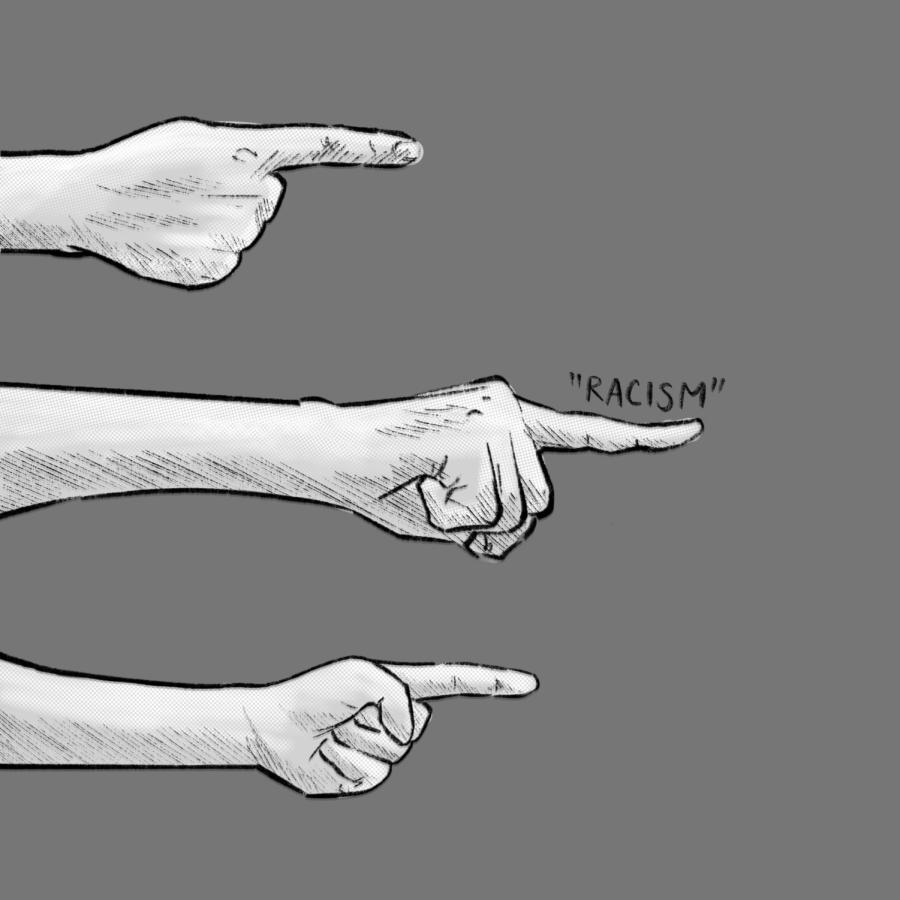Reverse Racism: A Myth to Keep White Fragility Intact
Centuries of institutionalized racism have hurt marginalized communities.
June 24, 2023
In the ever-evolving landscape of social justice, there’s one term that continues to rear its ugly head, perpetuated by those who are desperate to cling to their privilege: reverse racism. It’s a concept that attempts to undermine the systemic oppression faced by marginalized communities, suggesting that white people can somehow be victims of racism too.
The first lesson for those who cry “reverse racism” is that racism, by definition, is a power dynamic perpetuated by those in positions of authority. It is rooted in historical and systemic oppression. Marginalized communities, such as those of Black, Indigenous, and Asian people, have been systematically oppressed for centuries—experiencing discrimination in education, employment, housing, law enforcement, and more. To suggest that they, in turn, hold the same level of power to oppress white individuals is not only ignorant but is an insult to those who face real injustice on a daily basis.
To counter this harmful narrative, it’s crucial to distinguish between prejudice and racism. People often attempt to compare individual acts of prejudice such as name calling to racism. Prejudice is a personal bias or discrimination against an individual based on race, ethnicity, or other factors. Racism, on the other hand, is an institutionalized system that perpetuates the oppression of certain racial groups while benefiting others. While prejudice can occur on an individual level, racism operates on a larger scale. Racism also has far-reaching consequences that cannot be reversed with a few isolated incidents of individual prejudice. So, no, a person of color being prejudiced against a white person does not equate to systemic racism.
To understand the fallacy of reverse racism, we must acknowledge the historical context from which it emerged. Centuries of colonization, slavery, segregation, and institutional racism have left lasting scars on marginalized communities. The notion of “reverse racism” conveniently overlooks this history and attempts to erase the ongoing struggles faced by BIPOC individuals. It’s like pointing at a tiny scratch on your arm and comparing it to a gaping wound on someone else’s chest; it’s absurd, offensive, and utterly devoid of empathy.
Further, the power structures that enable racism continue to favor white individuals. Economic disparities, unequal representation in positions of power, and systemic discrimination persist, benefiting white people in ways they often fail to recognize. White individuals still hold disproportionate privilege and influence in society, making the notion of “reverse racism” nothing more than a misguided attempt at playing the victim.
Reverse racism is a concept fueled by privilege and ignorance, designed to preserve the status quo and undermine the struggles faced by marginalized communities. It disregards the historical context, power dynamics, and systemic nature of racism. As we strive for a more equitable society, it’s crucial to confront the uncomfortable truths about systemic oppression and dismantle the structures that perpetuate it. So, let’s retire the term “reverse racism” and focus our energy on the pressing tasks at hand: dismantling systemic racism and working towards true equality for all.











